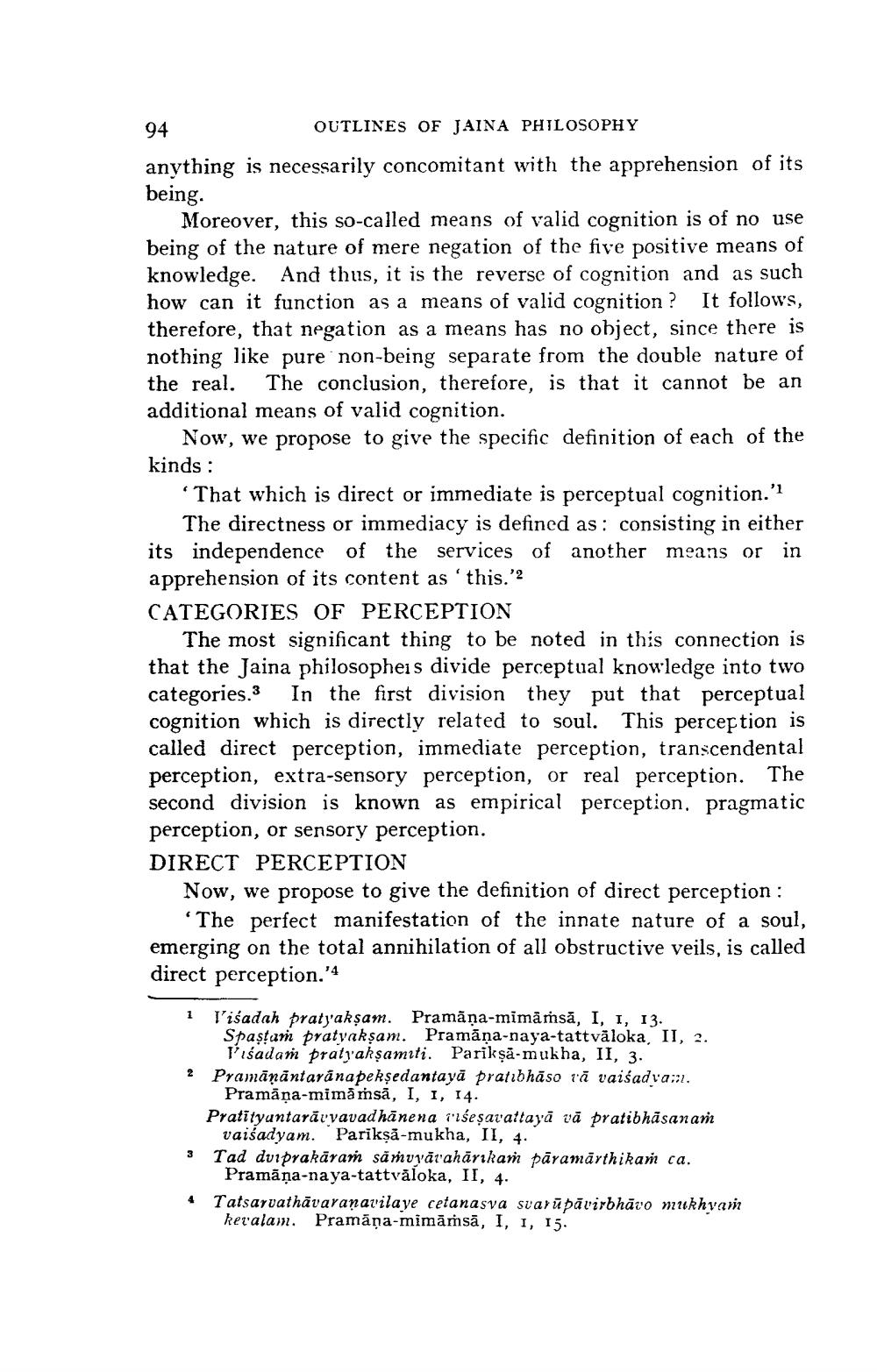________________
94
OUTLINES OF JAINA PHILOSOPHY anything is necessarily concomitant with the apprehension of its being.
Moreover, this so-called means of valid cognition is of no use being of the nature of mere negation of the five positive means of knowledge. And thus, it is the reverse of cognition and as such how can it function as a means of valid cognition? It follows, therefore, that negation as a means has no object, since there is nothing like pure non-being separate from the double nature of the real. The conclusion, therefore, is that it cannot be an additional means of valid cognition.
Now, we propose to give the specific definition of each of the kinds :
"That which is direct or immediate is perceptual cognition.'
The directness or immediacy is defined as: consisting in either its independence of the services of another means or in apprehension of its content as 'this.'2 CATEGORIES OF PERCEPTION
The most significant thing to be noted in this connection is that the Jaina philosopheis divide perceptual knowledge into two categories. In the first division they put that perceptual cognition which is directly related to soul. This perception is
ed direct perception, immediate perception, transcendental perception, extra-sensory perception, or real perception. The second division is known as empirical perception. pragmatic perception, or sensory perception. DIRECT PERCEPTION Now, we propose to give the definition of direct perception :
The perfect manifestation of the innate nature of a soul, emerging on the total annihilation of all obstructive veils, is called direct perception.'4
1 l'iśadah pratyakşam. Pramāņa-mimåmsă, I, I, 13.
Spastam pratvakşam. Pramāna-naya-tattvåloka, II, 2.
l' sadam pratyakşamiti. Pariksa-mukha, II, 3. 2 Pramānantarána pekşedantayā pratibhāso tā vaisadvan.
Pramāņa-mimamsā, I, I, 14. Pratityuntarārvavad hänena izsesavattayā vā pratibhāsanar
vaiśadyam. Pariksă-mukha, II, 4. 3 Tad dviprakāram să muvātahārıkaṁ pāramārthikan ca.
Pramāņa-naya-tattvåloka, II, 4. Tatsarvathāvaranatilaye cetanasva svarī pāvirbhāvo mukhvan ketalam. Pramāņa-mimārsā, I, I, 15.




